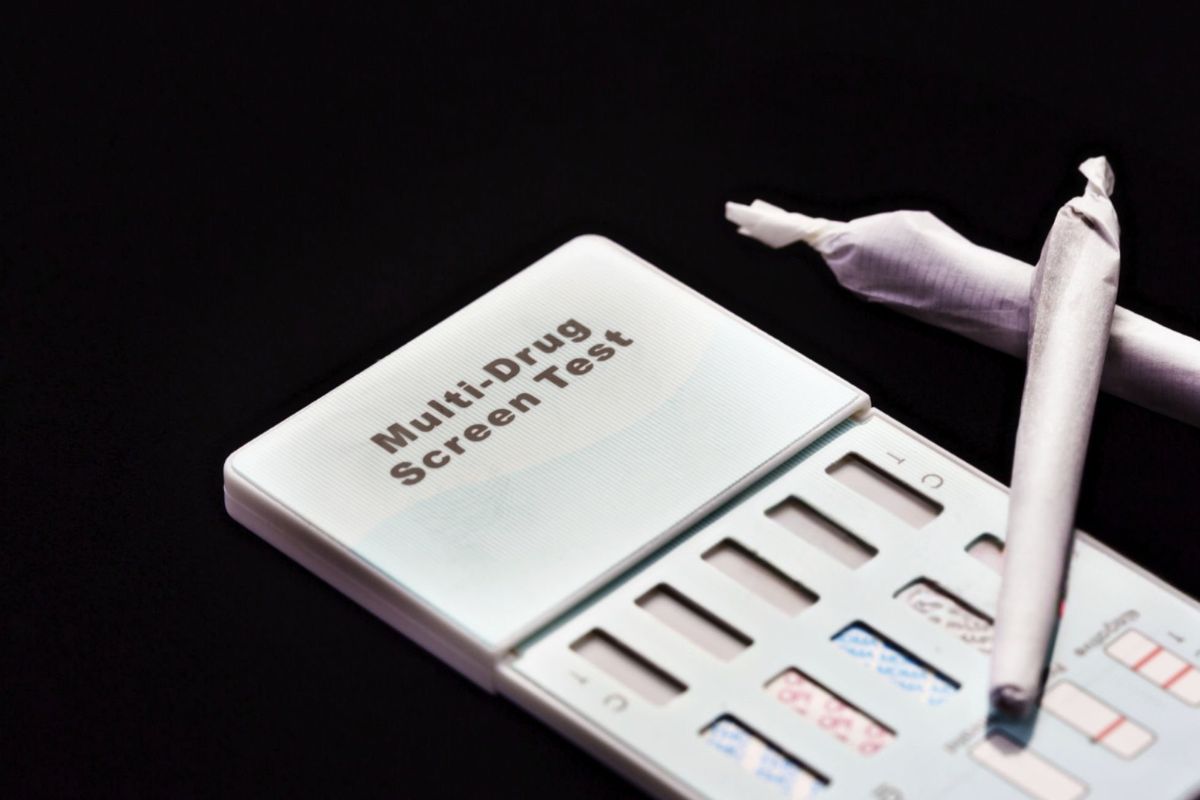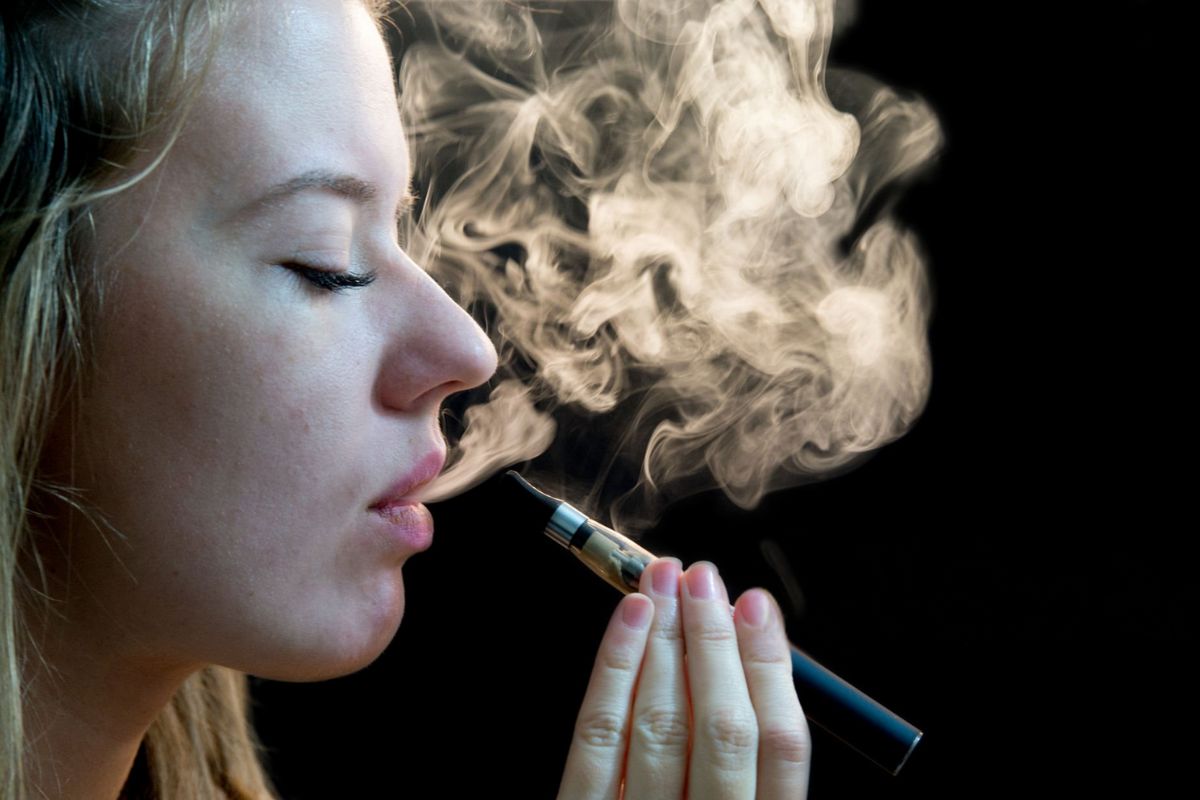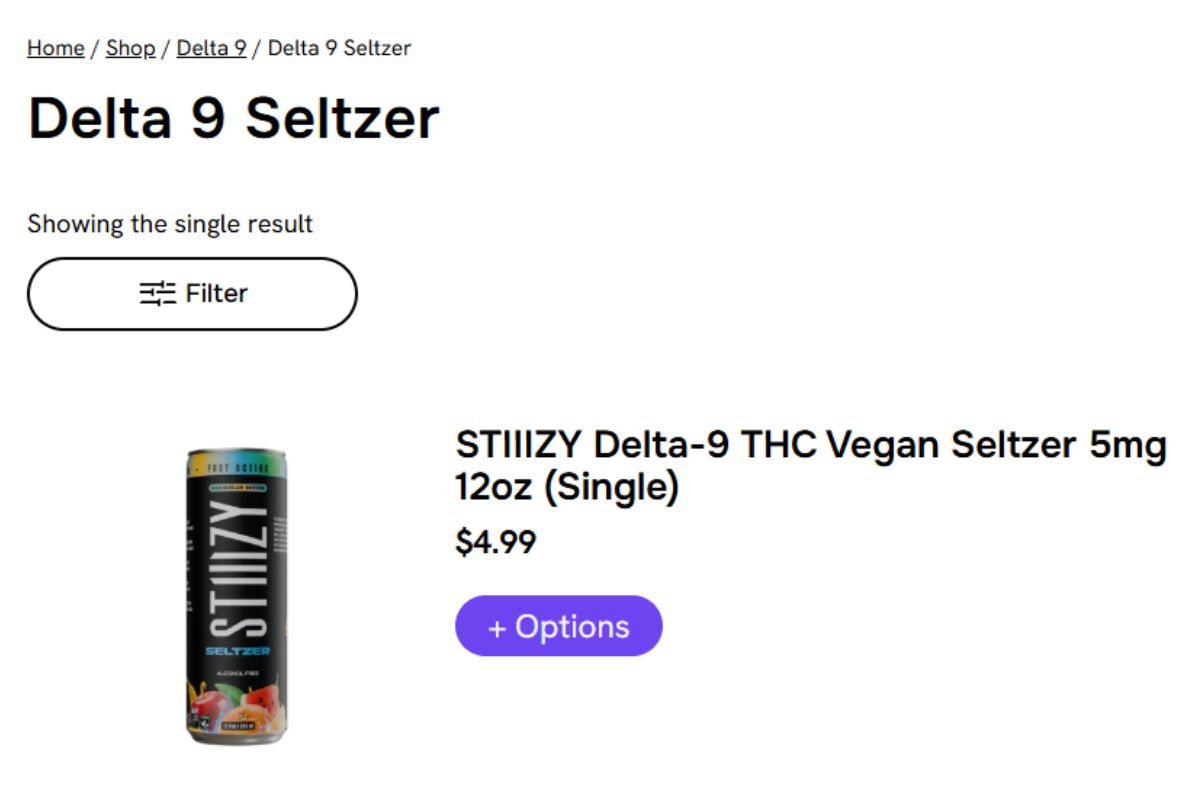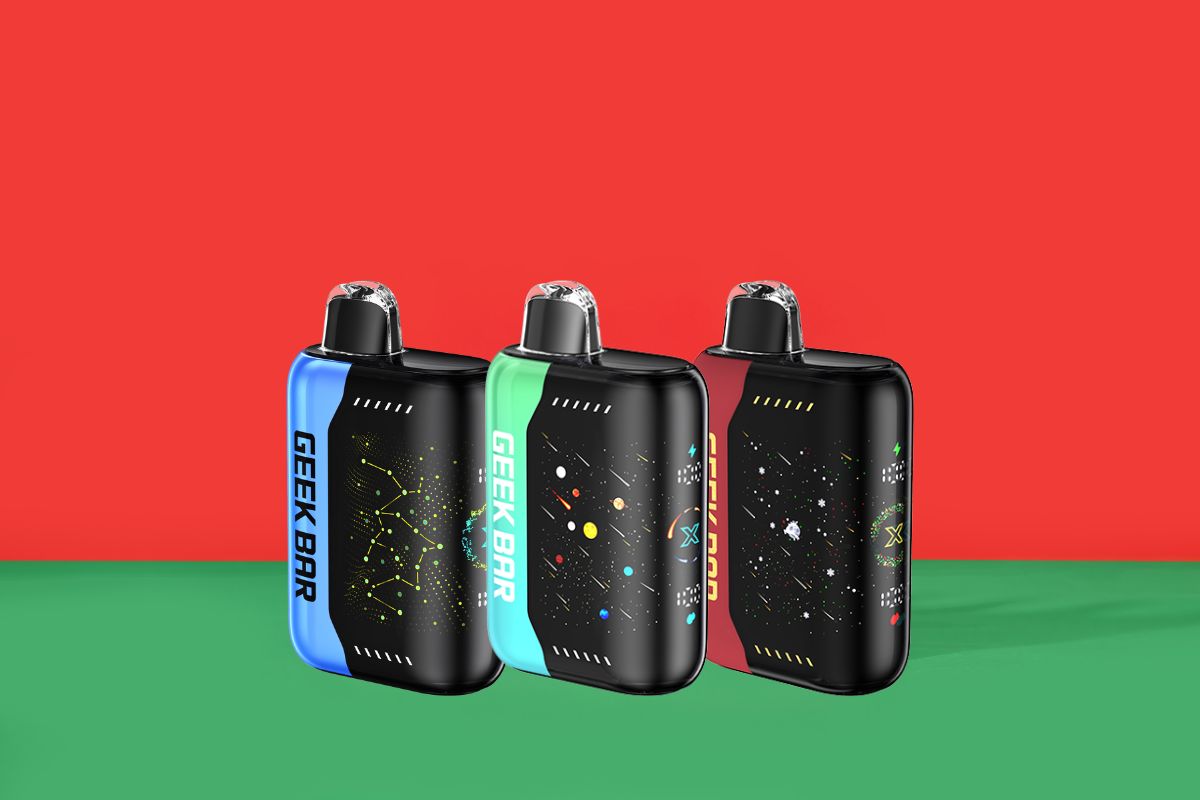Delta 9 Side Effects Next Day: What to Expect and How to Cope
Despite being celebrated for its euphoric highs, Delta 9 THC is equally known to cause lingering side effects the next day. These aftereffects, often called a “weed hangover,” can range from brain fog to fatigue, dry mouth, and mood swings, which disrupt productivity and mental clarity.
This is especially true after taking high doses or edibles. As cannabis use grows in popularity for both medical and recreational purposes, understanding the after effects of delta 9 use is critical for safe and informed consumption. Knowing its composition and dosage in various products allows us to understand its next-day side effects and improve recovery.
- Introduction to Delta 9 THC: The Primary Psychoactive Compound
- Understanding How THC Affects the Brain
- Smoking Cannabis vs. Other Consumption Methods
- What Are Delta 9 Side Effects the Next Day?
- The Science of Weed Hangovers
- Factors That Influence Your Experience
- High Doses and Their Lingering Effects
- Delta 9 THC and Mental Health
- Impact on Sleep, Digestion, and Appetite
- Brain Fog and Concentration Issues
- Physical and Emotional Effects of Delta 9 THC: Next-Day Impact
- How to Cope with Delta 9 Side Effects the Next Day
- Cannabis and Circadian Rhythms: Why You May Feel "Off" the Next Day
- Managing THC-Induced Anxiety and Paranoia the Next Day
- The Role of CBD in Reducing Delta 9 THC Side Effects
- Delta 9 THC and Cognitive Performance the Next Day
- Impact on Drug Testing
- Next-Day Productivity Hacks
- Best Practices for Recovery
- When to Seek Medical Help
- Tips for Minimizing Future Side Effects
- Differences Between Delta 8 and Delta 9 Side Effects Next Day
- The Role of Scientific Evidence in Understanding THC Effects
- Talking to a Doctor About THC Use
- Conclusion: Responsible Cannabis Consumption
From the next-day effects of delta 9 THC to their causes, and some of the evidence-based solutions that can help to manage them, this article will provide an in-depth look at Delta 9 THC side effects
Introduction to Delta 9 THC: The Primary Psychoactive Compound
Delta 9 tetrahydrocannabinol (THC) is the most abundant form of THC found in cannabis plants and is the primary psychoactive compound responsible for the mind-altering effects of marijuana. It binds to cannabinoid receptors in the brain and affects mood, memory, perception, and appetite.
Delta 9 THC is not only prevalent in smoked or vaporized cannabis but also features prominently in edibles, tinctures, and other cannabis products. As such, the concentration and formulation of delta 9 in a given product greatly influence its impact.
Understanding How THC Affects the Brain
THC affects brain chemistry by interacting with the endocannabinoid system, particularly the CB1 receptors. This interaction can produce a range of psychoactive effects, from euphoria to anxiety. These changes in neurotransmitter levels are responsible for cognitive function impairments, including memory loss, reduced attention, and altered judgment.
Peer-reviewed studies have shown that long-term THC use can affect the hippocampus, the part of the brain involved in forming new memories. Repeated exposure to THC can lead to neuroadaptations that impair synaptic plasticity. These changes influence how the brain processes information, potentially leading to diminished cognitive abilities over time.
This is especially relevant for adolescents and young adults, whose brains are still developing and may be more vulnerable to the neuropsychological effects of THC. As with many psychoactive substances, moderation is key to preserving long-term brain health.
Smoking Cannabis vs. Other Consumption Methods
| Consumption Method | Onset Time | Duration of Effects | Bioavailability (Effectiveness) | Health Impact | Common Use Case |
|---|---|---|---|---|---|
| Smoking (Flower) | 1–5 minutes | 1–3 hours | 25–30% | Lung irritation, harmful smoke | Fast relief, traditional experience |
| Vaping (Oil/Flower) | 1–3 minutes | 1–3 hours | 35–60% | Lower lung harm than smoking | Discreet, flavorful, portable |
| Edibles | 30–90 minutes | 4–8 hours | 4–12% | No lung harm, delayed effects | Long-lasting relief, sleep aid |
| Tinctures (Sublingual) | 15–45 minutes | 2–4 hours | 20–30% | Minimal harm, easy dosage | Balanced onset, discreet dosing |
| Capsules/Pills | 30–90 minutes | 4–8 hours | 4–12% | No lung impact | Medical use, steady effects |
| Topicals (Creams) | N/A (non-psychoactive) | Varies (local only) | Local effect only | No systemic THC impact | Pain/inflammation relief |
| Dabbing (Concentrates) | Seconds | 1–2 hours | 50–80% | High potency, lung strain | High tolerance users, instant effects |
| Beverages | 15–45 minutes | 2–4 hours | ~4–10% | No smoke, social consumption | Mild, social cannabis use |
The method of consumption plays a major role in how delta 9 affects users. Smoking cannabis leads to rapid onset of effects, while edibles produce delayed but often more intense and longer-lasting outcomes.
Each method alters how THC is metabolized, impacting the severity and duration of side effects the next day. Vaping, dabbing, and oils each introduce THC into the body in different ways, affecting both THC metabolism and potential adverse effects.
When smoked, delta 9 THC enters the bloodstream through the lungs and reaches the brain within minutes. Edibles, on the other hand, undergo hepatic metabolism, producing the potent 11-hydroxy-THC, which is associated with prolonged psychoactive effects.
Although a direct link is inconclusive, smoking cannabis may expose users to carcinogens also found in tobacco, raising concerns about long-term lung cancer risk. THC interacts with the body’s endocannabinoid system, particularly CB1 receptors in the brain, which is why it can influence mood, appetite, memory, and coordination.
Smoking cannabis remains one of the most popular methods of THC intake but also introduces tar and carcinogens that can irritate the lungs and potentially contribute to health risks.
These pharmacokinetic differences significantly influence the duration and intensity of next-day symptoms. Additionally, newer consumption technologies like nanoemulsions or sublingual strips are altering the way users experience and recover from THC effects.
What Are Delta 9 Side Effects the Next Day?
Many users experience symptoms like brain fog, dry mouth, lethargy, and irritability the day after consuming THC often referred to as a “weed hangover.” These lingering effects can interfere with daily activities and mental clarity, particularly after high dosages. Some users report digestive issues, increased appetite, or difficulty concentrating, especially following recreational use involving high potency THC products.
The severity of these symptoms can vary based on individual tolerance levels and frequency of use. For instance, first-time or occasional users may feel stronger after effects compared to experienced consumers.
The persistence of delta 9 metabolites in the system can lead to extended fatigue and difficulty maintaining motivation. Physical symptoms such as dehydration, mild headaches, or eye dryness are also common and can contribute to overall discomfort.
The Science of Weed Hangovers

The concept of a weed hangover is supported by research indicating that THC metabolites linger in the body and brain, affecting mental and physical performance the next day. This is due to slow THC metabolism and its accumulation in fatty tissues, leading to prolonged psychoactive effects. Systematic reviews and crossover trials further validate the presence of next-day symptoms, especially when users consume cannabis on an empty stomach.
Weed hangovers differ from alcohol-induced hangovers but can be just as disruptive. While alcohol is water-soluble and exits the body relatively quickly, THC’s fat-soluble nature means it can remain in tissues for days, especially with frequent use.
In double-blinded, placebo-controlled studies, participants reported measurable cognitive deficits, including reduced short-term memory and reaction times, following heavy cannabis consumption. These effects underline the importance of moderation and recovery planning.
Factors That Influence Your Experience
Individual body weight, metabolic rate, dosage, tolerance, and whether cannabis is consumed on an empty stomach all contribute to the severity of next-day effects. People with slower metabolism or less cannabis experience are more likely to experience stronger after effects. Genetics, hydration status, and even the strain of cannabis can alter the intensity and duration of symptoms.
Age also plays a significant role, with older adults potentially experiencing prolonged effects due to slower metabolism. Furthermore, hormonal fluctuations, overall health status, and concurrent medication use can modify the way delta 9 is processed in the body. Individuals with pre-existing medical conditions especially cardiovascular or mental health issues may be more vulnerable to delta 9 side effects the next day.
Delta 9 THC may interact with other drugs, including antidepressants, antipsychotics, and blood thinners, potentially altering their effects or increasing side-effect risks. For instance, THC use alongside certain antidepressants or anti-inflammatory drugs can compound effects, leading to increased fatigue or mood changes the following day. Personalized approaches and careful tracking of individual responses are essential for safer use.
High Doses and Their Lingering Effects
| Dosage Level (Delta-9 THC) | Common Effects | Lingering Effects (After Peak) | Duration (Total) | Risks & Warnings | Not Recommended For |
|---|---|---|---|---|---|
| 25–50 mg (High) | Strong euphoria, altered perception, dry mouth | Grogginess, fatigue, light confusion | 6–10 hours | Overstimulation, anxiety, high heart rate | Beginners, sensitive users |
| 50–100 mg (Very High) | Intense psychoactive effects, paranoia possible | “Weed hangover,” dehydration, memory fog | 8–12+ hours | Panic attacks, nausea, severe disorientation | Low-tolerance or first-timers |
| 100–200 mg+ (Extreme) | Disconnection from reality, couch-lock | Brain fog, poor coordination, next-day fatigue | Up to 24 hours or more | Overwhelming effects, risk of psychosis-like symptoms | Anyone without medical guidance |
| Edibles vs. Inhalation | Edibles hit later but last longer | Edibles have longer lingering effects | Edibles: 6–12 hrs Smoking: 1–3 hrs | Dose control harder with edibles | Use caution with both forms |
High doses of delta 9 THC increase the likelihood of experiencing symptoms like brain fog, fatigue, and impaired memory the next day. These effects can be more pronounced in older adults or those using THC to manage chronic pain.
Studies suggest that high dosages impair sleep quality and can lead to emotional sensitivity the following day. When large quantities of THC are consumed, especially via edibles or concentrates, the body requires more time to break down the active compounds.
The resulting overload can cause overstimulation of the endocannabinoid system, leading to temporary dysregulation of mood, appetite, and sleep patterns. High dosages also increase the risk of experiencing panic attacks or temporary psychotic-like symptoms, which can carry residual psychological effects into the next day.
Delta 9 THC and Mental Health
THC use, especially in high dosages, can cause or exacerbate anxiety, lead to panic attacks, and negatively affect sleep quality. Individuals with pre-existing mental health conditions may be particularly sensitive to these effects. Medical journals frequently cite delta 9 THC as a potential risk factor for psychosis in genetically predisposed individuals.
The relationship between cannabis use and mental health is complex. Some individuals use delta 9 THC to self-medicate for conditions like PTSD or depression, but paradoxically, high or frequent doses may worsen these same symptoms.
This dual nature of THC underscores the importance of controlled dosing and awareness of mental health history before engaging in cannabis use. Continued research in this area is crucial for developing safer therapeutic applications of delta 9 THC.
Impact on Sleep, Digestion, and Appetite
THC affects sleep cycles by reducing REM sleep, which can cause grogginess and poor sleep quality. It can also alter digestive system function and stimulate appetite leading to an increased appetite, which may persist into the following day. Some users experience mild nausea or bloating as part of their after effects, particularly when using THC products of unknown purity.
Chronic users may notice changes in bowel habits or experience episodes of cannabinoid hyperemesis syndrome, a rare condition characterized by cyclic vomiting. Appetite stimulation, commonly known as the “munchies,” may lead to overconsumption of food at night, contributing to sluggishness and digestive discomfort the next morning. Balancing cannabis use with good nutritional habits can mitigate these effects and promote better post-use recovery.
Brain Fog and Concentration Issues
Many users report next-day mental sluggishness, often described as “brain fog.” This includes difficulty focusing, slower thought processing, and challenges with problem-solving or multitasking. These effects are usually temporary but can interfere with work or academic performance.
Brain or cognitive fog is linked to how THC disrupts neurotransmitter activity and sleep architecture, particularly REM sleep. As a result, the brain may not fully reset overnight, leaving users feeling mentally drained. Staying hydrated, getting fresh air, and engaging in light mental activities can help clear up this fog faster.
Physical and Emotional Effects of Delta 9 THC: Next-Day Impact
| Effect Type | Specific Impact (Next Day) | Description | More Common After… | Tips to Reduce Impact |
|---|---|---|---|---|
| Physical | Fatigue or low energy | Feeling tired or sluggish despite sleep | High doses or late-night use | Stay hydrated, eat a healthy breakfast |
| Cognitive | Brain fog or slow thinking | Difficulty focusing or remembering simple things | Edibles or high-potency products | Limit dose, get sunlight in the morning |
| Emotional | Mild irritability or moodiness | Emotional dullness or slight anxiety | After intense or first-time experiences | Practice mindfulness, gentle activity |
| Sleep-Related | Oversleeping or grogginess | Feeling unrefreshed even after long sleep | Using THC right before bedtime | Use earlier in evening, avoid high doses |
| Hydration | Dry mouth, dehydration | Waking up with dry mouth or headache | Smoking or not drinking water | Drink water before and after consumption |
| Appetite | Increased or decreased hunger | Some users feel hungry again or have no appetite | Varies by body type and dosage | Eat a balanced meal post-use |
| Motivation | Lack of drive or low motivation | Feeling unproductive or “lazy” | Strong indicas or very high doses | Take a short walk or shower |
| Heart Rate | Residual mild palpitations | Slight heart awareness or unease | If used by anxious or sensitive users | Practice deep breathing, avoid caffeine |
Emotional Sensitivity and Mood Swings
Delta 9 THC can leave users emotionally sensitive or irritable the following day. This is partly due to how THC affects serotonin and dopamine regulation. Fluctuating neurotransmitter levels can contribute to temporary mood disturbances, especially after high or repeated doses.
Users prone to anxiety or depression may notice intensified symptoms the next day. Emotional regulation techniques such as mindfulness meditation, journaling, or connecting with a support network can be beneficial during this period.
Dehydration and Dry Mouth
One of the most common side effects is dry mouth, often lingering into the next day. THC reduces saliva production by acting on cannabinoid receptors in the salivary glands. Combined with dehydration from smoking or vaping, this can lead to persistent discomfort.
Drinking water before, during, and after cannabis use is essential. Herbal teas, electrolyte-rich drinks, and sugar-free lozenges can also aid in rehydration and stimulate saliva flow.
Eye Redness and Visual Fatigue
Eye redness is a result of THC lowering blood pressure, which dilates blood vessels and makes them more visible. Though harmless, it can persist into the next morning, contributing to visual fatigue and sensitivity to light.
Cold compresses and eye drops formulated for redness relief can alleviate these symptoms. Ensuring adequate sleep and taking regular screen breaks also supports faster visual recovery.
Muscle Weakness and Physical Fatigue
THC can cause next-day muscle heaviness or general tiredness, especially following heavy use or physical inactivity while under the influence. This fatigue can make routine activities feel more demanding. Stretching, light exercise, and hydration help alleviate muscle-related sluggishness. Foods rich in magnesium and potassium, like bananas or leafy greens, can further support muscle recovery.
Gastrointestinal Upset or Bloating
Some users experience digestive discomfort the next day, particularly when consuming cannabis-infused edibles. THC affects gut motility and gastric secretions, which can cause nausea, gas, or bloating. To ease symptoms, eat a light, easily digestible diet post-consumption. Ginger tea or peppermint oil capsules may help calm the digestive tract naturally.
Paranoia and Residual Anxiety
Anxiety and paranoia that peak during THC intoxication can sometimes extend into the next day. These feelings are typically tied to overconsumption or underlying anxiety disorders. Grounding techniques, calming routines, and avoiding caffeine can minimize residual anxiety.
Increased heart rate is a common physical side effect of delta 9 THC and may continue the next day, especially in sensitive individuals or those who consumed high doses. In severe cases, cognitive behavioral therapy may be helpful for individuals who regularly experience cannabis-related anxiety.
Impaired Motor Skills and Coordination
Lingering THC metabolites can subtly impair motor coordination and reaction time even the next day. This can affect driving a motor vehicle, using machinery, or performing sports and physical tasks. Avoid high-risk activities if you feel groggy or uncoordinated. Letting your body fully recover is the safest course, especially after using potent cannabis products.
Also impaired memory is among the most common side effects of delta 9 THC. This may persist the next day, particularly with high-potency products or edibles.
How to Cope with Delta 9 Side Effects the Next Day

Experiencing delta 9 side effects the next day doesn’t have to derail your productivity or mood. Proper recovery strategies can significantly reduce the discomfort and allow for a smoother transition back to regular activities.
Hydration is crucial. Drinking plenty of water can help flush lingering THC metabolites from your system and mitigate the dry mouth and dehydration that often accompany cannabis use. Electrolyte-rich drinks or herbal teas can replenish minerals lost during the process, enhancing recovery and rehydration.
Light exercise, such as walking or yoga, may improve blood circulation, increase energy levels, and reduce the lethargy that often follows THC consumption. Physical activity promotes the release of endorphins, which are natural mood boosters.
Furthermore, spending time outdoors and getting sunlight exposure can also help reset the body’s circadian rhythm, especially if THC use interfered with sleep patterns the night before. In addition to physical recovery, nutrition plays a key role in coping with the aftereffects of delta 9 THC. Foods rich in antioxidants, omega-3 fatty acids, and vitamins can support brain function and cellular recovery.
Incorporating nuts, seeds, leafy greens, and fruits like berries and citrus can replenish lost nutrients and promote cognitive clarity. Omega-3 supplements like fish oil or plant-based alternatives can help reduce any inflammation and support brain health.
Sleep hygiene is equally important during recovery. Avoid caffeine late in the day, as it may interfere with your body’s natural ability to wind down and recover. Instead, consider engaging in relaxing activities like meditation, deep breathing exercises, or a warm bath to promote better sleep quality after cannabis use. For mental clarity and focus, some users find nootropic supplements or natural adaptogens such as ashwagandha helpful in supporting cognitive function and reducing stress.
If symptoms persist or worsen, especially those related to mood, memory, or digestion, consider taking a tolerance break to allow your body to reset. Consulting a healthcare professional can help ensure that any lingering symptoms are not due to underlying issues or drug interactions, and they can provide personalized advice on managing the side effects of THC consumption.
Cannabis and Circadian Rhythms: Why You May Feel “Off” the Next Day
| Factor | How Cannabis Affects It | Next-Day Impact | Most Affected By | Tips to Minimize Disruption |
|---|---|---|---|---|
| Melatonin Production | THC may alter natural melatonin release | Sleep cycle shifts, grogginess | Nighttime or high-dose use | Avoid use 1–2 hours before bed |
| REM Sleep | THC can suppress REM sleep | Poor dream recall, less restful sleep | Regular or heavy use | Take THC breaks (tolerance breaks) |
| Sleep Architecture | Alters deep vs. light sleep balance | Feeling tired even after 8+ hours of sleep | Edibles and strong indicas | Try microdosing or switching to CBD |
| Sleep Onset (Falling Asleep) | May help you fall asleep faster | Dependency risk; harder to sleep without it | Daily nighttime users | Use THC sparingly as a sleep aid |
| Internal Clock (Circadian Rhythm) | Can push circadian rhythm later | Feeling “off,” jetlag-like fatigue | Late-night consumption | Keep a consistent sleep schedule |
| Mood Regulation | Disrupted sleep affects mood next day | Irritability, anxiety, or sadness | High doses before bed | Pair with calming activities (e.g., herbal tea) |
| Cognitive Function | THC-related sleep disruption leads to brain fog | Low energy, trouble focusing | Morning-after use | Hydrate, get natural light, stay active |
Delta 9 THC has a well-documented effect on circadian rhythms, the body’s internal clock that regulates sleep, wakefulness, and other physiological processes. THC can alter the timing of melatonin production, leading to sleep cycle disruptions. For many users, the delayed onset of deep sleep and suppression of REM sleep results in feelings of grogginess, irritability, and mental fog the following day. Even after a full night of sleep, these disruptions can compromise cognitive function, attention span, and overall mood.
The relationship between THC and the circadian system is complex and depends on several factors, including the timing of consumption and dosage. THC consumed late in the evening may interfere with the body’s ability to enter deeper stages of sleep, leaving users feeling unrefreshed or fatigued upon waking. In addition, the impact of THC on the body’s internal clock may cause a shift in the timing of the sleep-wake cycle, leading to inconsistent sleep patterns over time.
For some users, particularly those with existing sleep issues, regular cannabis use can exacerbate these disruptions, making it harder to establish a consistent, restorative sleep schedule. Chronic disruption of circadian rhythms can also affect hormone regulation, appetite, and mood. This is particularly relevant for those using THC to manage insomnia or stress, as THC’s calming effects may be counterproductive in the long run if it disrupts natural sleep architecture.
To mitigate these effects, users should consider consuming THC earlier in the day to avoid interference with sleep. Furthermore, practicing good sleep hygiene, such as maintaining a regular bedtime routine, limiting screen exposure before bed, and avoiding caffeine or stimulants, can help realign circadian rhythms. If sleep disturbances continue, reducing THC consumption or experimenting with lower doses may help in restoring natural sleep cycles.
Managing THC-Induced Anxiety and Paranoia the Next Day
While delta 9 THC is known for inducing euphoria and relaxation, it can also trigger anxiety and paranoia in some users, especially at high doses or when used in unfamiliar settings. The next day, these feelings may linger, manifesting as heightened stress or irritability. THC affects the brain’s neurotransmitters, including serotonin and dopamine, which play crucial roles in regulating mood. As a result, users may experience residual feelings of unease or nervousness, particularly if the THC consumed was potent or taken in large quantities.
To manage anxiety the following day, engaging in mindfulness exercises such as deep breathing or meditation can help calm the mind and restore emotional balance. Regular exercise is also beneficial, as physical activity boosts serotonin and endorphins, which can counteract feelings of anxiety. Eating nutrient-dense meals, especially those rich in omega-3 fatty acids, can support brain health and reduce inflammation, which may help mitigate lingering symptoms.
For those who are particularly sensitive to THC’s psychoactive effects, consuming smaller doses or choosing products with a balanced THC-to-CBD ratio may help reduce anxiety and paranoia during use. CBD, in particular, has been shown to counteract some of THC’s anxiety-inducing properties, making it an ideal companion for individuals looking for therapeutic benefits without the unwanted side effects.
The Role of CBD in Reducing Delta 9 THC Side Effects
CBD, or cannabidiol, is a non-psychoactive cannabinoid that can help counterbalance some of the psychoactive effects of THC. When combined with delta 9 THC, CBD can moderate feelings of anxiety, paranoia, and impaired coordination, which are common side effects of THC. Many users find that incorporating CBD products into their routine either through tinctures, capsules, or edibles can help mitigate the negative aftereffects of delta 9 THC the next day.
CBD works by interacting with the body’s endocannabinoid system, particularly the CB1 and CB2 receptors, which regulate a variety of physiological functions, including mood and stress response. By influencing these receptors, CBD can reduce the intensity of THC’s effects on the brain, leading to a more balanced and comfortable experience. This synergy between CBD and THC, often referred to as the “entourage effect,” is particularly beneficial for users who experience severe side effects from high-THC products.
Incorporating CBD products into your post-consumption recovery routine may help ease residual symptoms such as anxiety, muscle tension, and fatigue. Some users report improved focus and mood when combining CBD with THC, making it an effective strategy for those looking to minimize next-day discomfort without sacrificing the therapeutic effects of cannabis.
Delta 9 THC and Cognitive Performance the Next Day
Next-day cognitive performance can be significantly impacted by delta 9 THC use, particularly when high doses are consumed. Studies have shown that THC affects short-term memory, attention, and decision-making, which can persist well into the following day.
Users may experience difficulty concentrating, remembering details, or completing tasks that require mental clarity. For those who rely on cognitive function for work or academic pursuits, these impairments can be frustrating and disruptive.
To help mitigate cognitive deficits, taking regular breaks, staying hydrated, and engaging in cognitive exercises such as puzzles or reading can help stimulate the brain and enhance focus. Additionally, consuming a balanced diet that supports brain health, including foods high in antioxidants and omega-3 fatty acids, can aid in cognitive recovery.
Regular marijuana use may lead to more pronounced rebound symptoms and marijuana dependence. Moderating THC intake and avoiding overconsumption can prevent severe cognitive impairments the following day. Microdosing or using products with a lower THC-to-CBD ratio can provide the benefits of cannabis without the risk of cognitive disruption.
Impact on Drug Testing

Even after the psychoactive effects of delta 9 THC have subsided, its metabolites can remain in the system for an extended period often days or weeks depending on the frequency of use and dosage. This creates a potential issue for users who are subject to workplace drug testing, as standard urine tests can detect THC metabolites for up to 30 days in chronic users, and even longer for those with higher body fat.
The risks are particularly significant for those using delta 9 THC regularly or in large amounts, as the detection window may be extended. In such cases, it’s important to consider alternatives such as non-psychoactive cannabinoids like CBD, which do not pose the same drug testing risks.
For individuals concerned about potential testing, planning consumption around important testing dates and choosing products with a low THC content may help mitigate the risk of a positive test result.
In addition, cannabis laws differ by region and affect how delta 9 THC can be accessed and used legally. Always stay informed about your local regulations to avoid penalties.
Next-Day Productivity Hacks
To bounce back from the effects of delta 9 THC and improve next-day productivity, consider adopting a few key habits that can help restore mental clarity and energy. Starting your day with a cold shower can help increase alertness and stimulate circulation, giving you a boost of energy. Light exercise or a brisk walk is another great way to invigorate the body, improving focus and helping to combat fatigue.
Proper hydration is crucial as well, as THC can dehydrate the body, leading to dry mouth and fatigue. Drinking water throughout the day will help replenish fluids and flush out any remaining metabolites. Eating a balanced, nutritious breakfast with proteins, healthy fats, and complex carbs will fuel your body and mind, improving your ability to concentrate and stay productive.
Natural nootropics like L-theanine (often found in green tea) or ginseng may also help boost cognitive function and focus, reducing the mental fog left by THC. Be sure to avoid consuming THC again the next day, as it will only delay your recovery process and potentially exacerbate any lingering side effects. Allow your body time to fully clear out the cannabinoids before reintroducing them into your system.
Best Practices for Recovery
Taking the time to properly recover after using delta 9 THC, especially after a high-dose session, can help ensure that the side effects are minimized and your body and mind return to baseline as quickly as possible. Sleep is one of the most important factors in recovery.
If you’ve experienced disrupted sleep due to THC, focus on creating a calm and soothing sleep environment. This can include using a sleep aid playlist with calming sounds, practicing light stretching before bed, or even using a weighted blanket to reduce anxiety and promote deeper sleep.
Good nutrition also plays a crucial role in the recovery process. Ensure you’re eating nutrient-dense foods that can support your brain health, such as leafy greens, fruits, omega-3-rich foods like salmon or flax seeds, and antioxidants that help combat oxidative stress. Hydration is equally important drink plenty of water throughout the day to support kidney function and to flush out any remaining THC metabolites.
Mindfulness practices like meditation or deep breathing exercises can also help reduce the psychological effects of THC, such as anxiety or cognitive fog. Establishing a post-use recovery routine that incorporates sleep, hydration, and mental health practices can facilitate a smoother rebound.
When to Seek Medical Help
| Symptom Type | Common Side Effects (Usually Safe) | Serious Side Effects (Seek Medical Help) | When to Take Action | Who’s Most at Risk |
|---|---|---|---|---|
| Mental/Emotional | Anxiety, paranoia, confusion (mild) | Intense panic, delusions, hallucinations | If symptoms last more than 2–3 hours or worsen | First-time or high-dose users |
| Physical | Dry mouth, red eyes, increased appetite | Chest pain, racing heart, trouble breathing | Immediately if chest discomfort is present | Those with heart conditions or high blood pressure |
| Cognitive | Brain fog, difficulty concentrating | Memory loss, extreme disorientation | If unable to recognize surroundings or people | Elderly, very high dosage |
| Sleep | Drowsiness, vivid dreams | Inability to wake up, unresponsiveness | If person is non-responsive or unconscious | Children, accidental ingestion |
| Nausea/Body | Mild nausea, dry throat | Severe vomiting, dehydration, tremors | If vomiting continues for hours | Overconsumption of edibles |
| Behavioral | Laughter, slowed reaction time | Aggressive or erratic behavior | If behavior becomes dangerous | Individuals with mental health conditions |
| Duration of Effects | 4–6 hrs (smoking), 6–12 hrs (edibles) | Symptoms lasting 12+ hours with no improvement | Call poison control or go to ER | Anyone unsure of amount consumed |
While most of the side effects from delta 9 THC use are temporary and subside within a day or two, some users may experience persistent or severe symptoms that require medical attention. Symptoms such as excessive vomiting, confusion, dizziness, or heart palpitations may be indicative of a more serious adverse reaction and should not be ignored.
In particular, individuals with underlying health conditions, such as cardiovascular issues, anxiety disorders, or respiratory problems, should be especially cautious. If any symptoms interfere with your breathing, consciousness, or mobility, seeking immediate medical attention is critical.
A healthcare professional can help rule out complications like cannabinoid hyperemesis syndrome, a rare condition that causes intense vomiting, or any drug interactions that might be exacerbating the side effects of cannabis.
It’s always best to err on the side of caution when it comes to your health. If you’re uncertain about the severity of your symptoms or how they are affecting your well-being, reaching out to a medical professional can provide the reassurance and care needed.
Tips for Minimizing Future Side Effects

To reduce the chances of experiencing unwanted side effects from delta 9 THC in the future, it’s helpful to approach cannabis use with a strategy that prioritizes moderation and self-awareness. Starting with low THC doses and gradually increasing them can help you gauge your tolerance and minimize the chances of experiencing intense psychoactive effects.
Avoid mixing THC with alcohol, stimulants, or other substances that can amplify its effects. This combination can increase the likelihood of adverse side effects, such as paranoia or nausea, and prolong recovery time. It’s also helpful to consume cannabis in a familiar, comfortable environment to avoid external stressors that might exacerbate the effects of THC.
Keeping track of your experiences with different strains and products will also help you identify which types of cannabis are most compatible with your body. Some strains or consumption methods may be more likely to cause side effects than others, so taking note of these patterns can help you make more informed decisions in the future. Additionally, incorporating CBD into your cannabis regimen may help mitigate the negative effects of THC, such as anxiety or paranoia.
Differences Between Delta 8 and Delta 9 Side Effects Next Day
| Category | Delta 8 THC | Delta 9 THC |
| Cognitive Fog / Mental Clarity | Users often report minimal next-day brain fog. The mild nature of Delta 8 tends to result in a clearer head and better functionality the morning after use. | Delta 9 can cause noticeable cognitive fog or “weed hangover” symptoms, including sluggish thinking and difficulty concentrating. |
| Mood and Emotional Sensitivity | Less likely to cause emotional aftereffects. Users typically feel calm or neutral the next day. | May leave users feeling emotionally sensitive, irritable, or moody, especially after high doses or frequent use. |
| Fatigue / Physical Tiredness | Mild fatigue may occur, but it’s usually manageable. Most users wake up feeling relatively refreshed. | Common next-day side effect. Delta 9 can cause lingering muscle heaviness and tiredness, especially after evening or high-dose use. |
| Anxiety or Paranoia Aftereffects | Rare with Delta 8. It’s generally well tolerated and less likely to provoke lingering anxiety. | Residual anxiety or paranoia may continue the next day, especially in sensitive individuals or after intense experiences. |
| Dry Mouth / Dehydration | Mild dry mouth may persist but typically resolves quickly with hydration. | Persistent dry mouth is more common and may be uncomfortable well into the next day. |
| Gastrointestinal Upset | Rarely reported; more gentle on digestion, even when consumed in edible form. | May cause bloating, nausea, or digestive discomfort, especially after high-dose edibles. |
| Sleep Quality | Often improves sleep and leaves users feeling rested. Some report light drowsiness the next day. | Can disrupt sleep cycles or cause grogginess upon waking, depending on dose and timing. |
| Motor Coordination / Reaction Time | Generally retains normal coordination the next day. Safe for most routine tasks. | Lingering slowed reflexes and coordination may persist, affecting driving or physical activity. |
| Productivity / Focus | Most users can return to normal tasks quickly. Delta 8’s smoother effects allow for faster recovery. | May impact next-day productivity, especially for mentally demanding or high-pressure activities. |
The Role of Scientific Evidence in Understanding THC Effects
Scientific research plays a critical role in shaping how we understand the benefits and side effects of delta 9 THC. A meta-analysis compiles data from multiple cannabis studies, helping to identify consistent patterns especially in areas like pain relief, appetite stimulation, and nausea control.
These broad evaluations are vital for drawing reliable conclusions from the growing body of cannabis research. Complementing this, a systematic review takes a comprehensive look at clinical data to assess both the therapeutic potential and the health risks associated with marijuana use, helping guide safer consumption practices in both medical and recreational contexts.
Cannabis cannabinoid res is expanding rapidly, uncovering how various compounds like THC, CBD, and CBG interact with the endocannabinoid system. This growing body of evidence shapes how we approach treatment for conditions ranging from chronic pain to rare neurological disorders.
Equally important are double-blinded studies, which eliminate researcher and participant bias, thereby enhancing the reliability of findings related to THC’s psychological and physiological effects. To ensure content accuracy when discussing cannabis products or policies, it’s essential to rely on credible sources, such as peer-reviewed journals, academic institutions, or government health organizations. This foundation of scientific integrity supports responsible cannabis use, informed decision-making, and public health awareness.
Talking to a Doctor About THC Use
If you’re using delta 9 THC for medical reasons or if you frequently experience adverse side effects, it’s a good idea to consult with a healthcare provider who is knowledgeable about cannabis. A doctor with expertise in medical cannabis can help you develop a personalized dosing plan that balances the therapeutic benefits of THC while minimizing side effects.
Being transparent about all supplements and medications you are using is essential, as some substances can interact with THC, leading to unintended side effects or reduced effectiveness. A doctor can also help identify any underlying health conditions that might be exacerbated by cannabis use.
Cannabinoids, including delta 9 THC, are gaining recognition for their potential in treating rare diseases where conventional therapies often fail such as certain forms of epilepsy syndromes. In chronic conditions like rheumatoid arthritis, THC may help reduce inflammation and alleviate joint pain, particularly when used in conjunction with other cannabinoids like CBD or CBG.
These non-psychoactive compounds can balance THC’s effects and contribute additional therapeutic benefits. As the most prominent cannabinoid found in cannabis, delta 9 THC offers significant effects on its own, but research suggests it works more effectively as part of the plant’s full spectrum, where synergistic interactions enhance overall outcomes.
For individuals looking for alternatives to THC, a healthcare provider can recommend CBD-dominant products or other non-psychoactive therapies that may be better suited to your needs.
Conclusion: Responsible Cannabis Consumption
Understanding the potential side effects of delta 9 THC the next day is key to responsible cannabis consumption. Whether it’s cognitive fog, mood changes, fatigue, or motor impairments, the aftermath of cannabis use can vary greatly from person to person.
Understanding the risk profile of delta 9 THC, including potential dependency and cognitive side effects, can help users make informed choices.
With proper dosing, hydration, and recovery practices, many users can experience smooth sailing the day after THC use with little to no disruption in their routine.
By staying informed and mindful of your own body’s reactions, you can reduce the risks associated with THC use and make more conscious decisions about your consumption.
Establishing a routine for recovery, being proactive in adjusting your habits, and understanding the importance of moderation can help ensure that you enjoy the benefits of THC without significant disruption to your daily life. Responsible use, clear expectations, and a well-thought-out recovery plan are essential to enjoying cannabis safely and responsibly.













